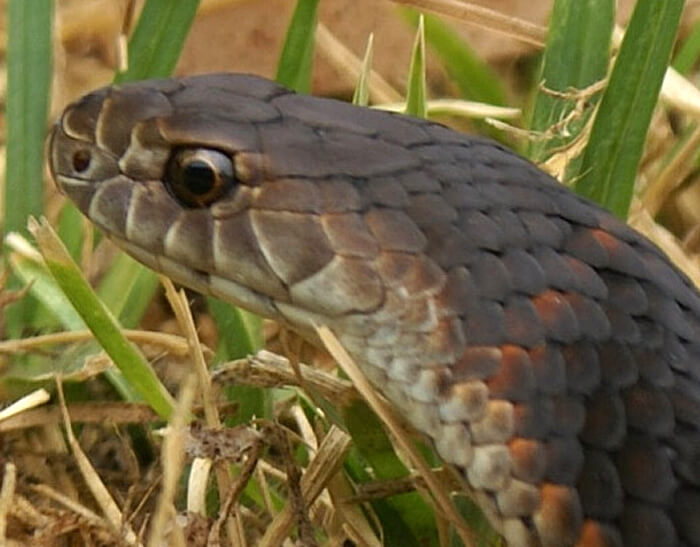Introduction
Tiger serpents are among the most popular and feared reptiles in Australia, widely recognized for their striking appearance and powerful poison. This write-up aims to look into the intricacies of the tiger snake's environment, circulation, behavior, and what one can anticipate when experiencing these interesting creatures. By comprehending where to discover them and just how to browse possible threats, you can appreciate their duty in the ecological community while guaranteeing your security.
Tiger Snake Habitat: Where to Discover Them and What to Expect
Tiger snakes are predominantly found in southeastern Australia, Is a King brown snake poisonous consisting of Tasmania, where they prosper in a variety of atmospheres. Their flexibility allows them to live in diverse terrains such as coastal areas, marshes, grasslands, and even city areas.
Geographical Circulation of Tiger Snakes
The geographical reach of tiger serpents Visit website extends throughout a number of Australian states. They are especially typical in:
- Tasmania: The Tasmanian tiger snake is among the most acknowledged subspecies. Victoria: Located near water bodies like rivers and lakes. New South Wales: Liking bushland areas near to water sources. Western Australia: More typically seen around swamps and estuaries.
Understanding the geographical distribution is critical for both conservation efforts and public awareness pertaining to encounters with these snakes.
Preferred Habitats of Tiger Snakes
Tiger serpents grow in various environments. Below are some typical atmospheres where they may be discovered:

Behavioral Patterns Associated with Habitat
Understanding tiger snake behavior within their environments is crucial for communication administration:

- Nocturnal Activity: Tiger serpents often tend to be a lot more active during golden hours (sunset and dawn), making them more difficult to find throughout daytime. Territorial Nature: They show territorial actions; hence, it's vital to respect their room if encountered.
This understanding can help reduce unwanted interactions between people and tiger snakes.
Are Tiger Snakes Venomous?
Yes, tiger snakes are without a doubt poisonous. Their venom includes neurotoxins that can cause paralysis or perhaps death if untreated.
What Makes Their Venom Dangerous?
The effectiveness of a tiger serpent's venom varies relying on several elements:
- Geographic location Individual health Quantity injected throughout a bite
Symptoms of a Tiger Snake Bite
Recognizing symptoms early is essential:
- Pain at the bite site Swelling Difficulty breathing
Immediate medical interest is crucial if bitten.
First Aid for Serpent Bites
Knowing emergency treatment treatments can be lifesaving in instance of a snake bite.

First Help Steps for Snake Bites
Stay calm; keep the damaged area still. Call emergency services immediately. Apply a stress plaster over the bite site. Keep the specific lying down till assistance arrives.Following these steps can considerably enhance outcomes adhering to a snake encounter.
Where Else Can You Run Into Tiger Snakes?
While they're typically located in their natural habitats, urbanization has actually brought about increased encounters with humans.
Urban Encounters
Tiger serpents may venture into yards or parks looking for food or water sources.
Precautions When Hiking or Exploring
When checking out locations known for tiger snake environments:
- Wear thick boots Stay on paths Be vigilant
Taking these precautions will certainly aid minimize dangers while you appreciate nature.
Baby Tiger Snakes: A Distinct Perspective on Growth
Just like grownups, infant tiger snakes are birthed venomous but smaller sized in size.
Characteristics of Infant Tiger Snakes
- Size: Commonly around 20-- 30 centimeters when born. Appearance: Sport similar coloration as adults but may have lighter bands initially.
Understanding their development aids in valuing their eco-friendly duty from infancy onward.
FAQs regarding Tiger Snakes
1. Are all tiger snakes venomous?
Yes, all species of tiger snakes possess venom capable of causing significant harm.
2. Exactly how can I recognize a tiger snake?
Look for distinctive banding patterns varying from yellowish-brown to blackish colors along their bodies; grownups typically expand in between 1-- 2 meters long.
3. What should I do if attacked by a tiger snake?
Seek immediate clinical attention; apply first aid measures as gone over earlier while maintaining calm.
4. Do baby tiger snakes position any type of danger?
Absolutely! Regardless of their tiny dimension, child tiger snakes are still venomous and can provide bites that call for significant clinical attention.
5. Are there any type of specific environments I need to avoid?
Avoid going through dense underbrush or near stagnant water where conditions favor serpent presence during warmer months.
6. How do conservation efforts influence tiger serpent populations?
Conservation campaigns concentrate on habitat preservation which directly affects population stability by making certain enough food sources and risk-free reproduction locations.
Conclusion
In recap, comprehending "Tiger Snake Habitat: http://zionvncd262.fotosdefrases.com/first-aid-for-a-snake-bite-a-step-by-step-approach Where to Discover Them and What to Expect" not just improves our expertise regarding these amazing reptiles but likewise boosts our ability to exist side-by-side safely with them in shared atmospheres. From recognizing their chosen habitats to understanding just how to react properly if bitten, extensive understanding encourages all of us-- whether we're wildlife fanatics or casual hikers-- to value this remarkable aspect of Australia's all-natural heritage while prioritizing our safety.
This article acts as an extensive overview on whatever pertaining to tiger serpent habitats! Whether you're an avid explorer or a person looking simply for info about these animals, knowing just how they engage within their ecological communities-- and just how we fit into that image-- is crucial!